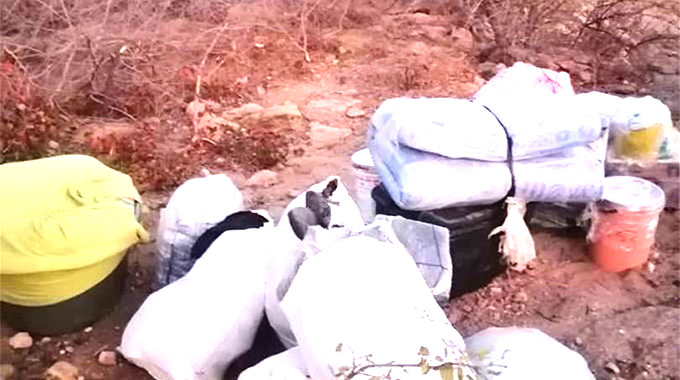EDITORIAL COMMENT : Upgrades will plug smuggling, loopholes

Revelations this week by industrial leaders and confirmation by the tax authorities of potential loss of customs duty revenue amounting to nearly US$1 billion annually through smuggling and exploiting loopholes within customs processes call for urgent action and solutions to stop the haemorrhage.
The fact that Treasury could be losing so much money shows just how much faster Zimbabwe could advance.
Government should upgrade many of its services by simply addressing border security issues, holes in the customs systems processes and infrastructure deficiencies. With more tax money a lot more can be done.
Corruption by some Zimbabwe Revenue Authority officials and agents manning our entry points has to be checked because all the smugglers are seen by someone or their free movement is actually facilitated.
Captains of industry and commerce said apart from prejudicing Treasury of resources needed for essential Government programmes, duty and tax evasion compromised the viability of businesses that abide by all customs requirements.
Taxes are a cost, a necessary one, and those who escape paying them can undercut the legal businesses.
This smuggling should be stopped forthwith because it overburdens law abiding good corporate citizens who continue to be saddled with the responsibility of contributing towards national development while others enjoy the facilities for free.
Deliberate tax and duty evasion is a common practice across the world, but while the phenomenon is known and not peculiar practice to Zimbabwe, efforts must be made to stop or reduce it because it has serious financial implications to national development.
The Zimbabwe National Chamber of Commerce has since called on Government to give Zimra the resources needed to deal with problem issues regarding administration of customs processes and border security deficiencies.
Zimra said while it was difficult to give credible estimates of potential customs duty lost to illegal imports and actions designed to evade or suppress duty, smuggling remained rampant despite the measures it has instituted to curtail the vice.
So in a way it means the measures Zimra is putting in place do always work as well as hoped, or that some are deliberating helping the evaders.
Amid changing global trends business leaders say the Government through Treasury should urgently allocate funds towards improving efficiency of border control systems and modernise the infrastructure at the ports of entry.
Given that issues of border surveillance involve a number of State agents, including the security forces, efforts must be made to ensure that all stakeholders work closely with the customs officials to plug leaks from smuggling, infective customs and porous national borders.
It is heartening to know that efforts are underway to rope in security forces such as the military to effectively monitor and carry out surveillance in remote and dangerous places such as parts of the Eastern Highlands of Zimbabwe, which may have landmines in certain places, but resources needed to acquire appropriate vehicles are a stumbling block.
Importantly, Government needs to ensure that all State agents work hand-in-glove to address issues stifling efficient customs systems, effective border controls and giving way to unrestrained smuggling.
Tax authorities have indicated that resources were standing in the way of planned programmes like border surveillance of water boundaries such as Kariba and Zambezi River, which needs to be looked into without further delay.
Notably though, discussions are underway with security establishments and the aviation authorities for use of regulated equipment such as drones for border and airport surveillance, and we applaud these efforts as they will help enhance the security of border areas and curb illegal activities.
Commendable is also the fact that efforts are underway to counter the incidence of rampant smuggling, with Zimra recently saying focus was now on implementing a new US$10 million tax and revenue management system, which is funded by the African Development Bank.











Comments